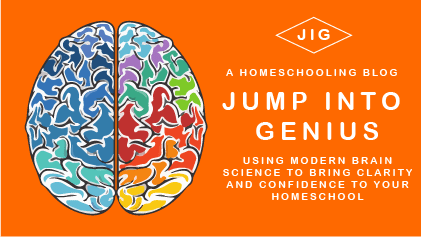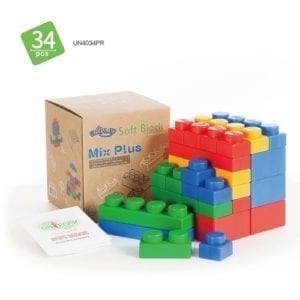Poetry is often relegated to the pile of optional subjects. Optional subjects are the first ones we cut when we are busy or overwhelmed. Is poetry entirely necessary to a good education? Isn’t it a bit antiquated and irrelevant in this age of technology? Would our children not be better served learning a programming language instead?
When exposure to poetry is limited, or early experience of poetry tedious, students will be unlikely to later benefit from the deeper historical, philosophical, or religious works.
Andrew Pudewa - Linguistic Development Through Poetry Memorization
Don’t let your own childhood experience of tedious poetry studies keep you from finding the laughter, love, and linguistics of good poetry.
We remember having to read some poems in school and the pain of analyzing those poems. Especially the playful nonsense poems. I often feel pity for the authors of those poems. I imagine they wrote the nonsense as a rebellion against such analytics. I do not imagine they would be happy to know that the life has been sucked out of their playful poems.
So often we throw out the good with the bad. How about we just throw out the boring and often contrived analyzing of poetry, but keep the poems themselves? How about we celebrate them instead of dissecting them? How about we read them over and over, letting them roll off the tongue and sink into the soul, as poetry is created to do?
This is what the program, Linguistic Development Through Poetry Memorization provides. A gentle, pleasing taste of poetry. An emphasis on laughter and playfulness. We know a poem more deeply by spending more time with it, not by writing pretentious essays that pretend to know it. But by putting the poem inside of us. We know a poem by memorizing a poem. The poem becomes a part of our neural structure. The vocabulary, structure, and meaning of the poem are stored in our brain. This opens our brain to further learning of complex language and vocabulary.
Poetry is food for both the brain and the heart.
We partake of the transforming power of poetry when we allow a poem to rewire our brain. This process is called memorization. Without memory, there is no learning. We may think we do our children a favor by not asking them to memorize any material. But, in reality, we just make learning more difficult when we refuse to admit that memorization is an integral part of the learning process.
“Neurologically, memorization develops the brain in a way nothing else can.”
Linguistic Development Through Poetry Memorization,
Andrew Pudewa
Our children will memorize things even if we do not ask them to. Whether or not we choose to put good and beautiful things into their minds on purpose, their minds will fill up with something. It is what our minds are born to do.
It is simply the nature of our brain to memorize things. It will memorize anything that we spend time thinking about. So perhaps we can let go of the false arguments condemning memorization as an arcane tool of education. It will never be arcane because the human brain will always remember what it spends time thinking about.
The question is, what do our kids think about? Will we take advantage of this characteristic of the brain? Will we encourage our kids to think about things that are worth remembering?
Poetry does many things for the brain.
- Increases vocabulary
- Fills our minds with examples of abstract use of language
- Fills our hearts with wonder and emotion. Poetry is a safe place to experience the full range of human emotions.
- Poetry can bring a heart to gratitude for the simplest things in life.
- Poetry can tell an epic story.
- Poetry can help us laugh.
Poetry is not an option in our homeschool. When choosing between the many good things I can fit into a day of learning, I cannot, in good conscience, throw out poetry in the name of practicality.
When my children are grown and they face grief, heartache, or happiness, it is the poetry that will carry them through dark times and help them relish the good times.
It will not be practical skills. It will not be a programming language. It will be the words that are a part of their hearts and mind. The words that have formed them. Yes, it will be stories too, but the poems and stories that have formed their hearts will rise up in the very moments they need to remember them. Their brain knows what food they need and will dish it up at just the right moment.
If you have no idea what I am going on about, perhaps you did not have the gift of a childhood filled with stories and poems. And if you did have that gift, I think that if you pay attention, you will find that these stories and poems do seem to bubble up from within you, rising to the surface of your consciousness just when you need them.
So where do you start? How do you include this marvelous subject in your homeschool?
Read a poem every day. But if it is a poem worth remembering, read it again the next day and the day after that. Keep reading the poem until everyone knows it by heart. Then start a new poem, but don’t neglect the old poem. Keep saying it every day. When you have too many poems to say all of them every day, you can say some of them every other day instead of every day.
This is the prescription given in Linguistic Development Through Poetry Memorization. The program comes with pre-selected poems. Easier, shorter poems at the beginning of the program, moving into longer and more complex poems as you go. There are 5 units and the final unit moves away from poetry to memorize selections of famous speeches.
The program comes with audio CD’s which are an easy way to review, printable copies of each poem, and charts to keep track of which poems have been memorized.
Most of the poems in the program are suitable for secular homeschoolers, but there are a few poems with Christian content. You can easily replace these with a poem of your own, or just skip individual poems. However, the vast majority of the poems are suitable for all audiences.
There are many classic, well-known poems included in addition to lesser-known poems which are especially appealing to children. The poems are meant to delight kids and make memorizing poetry a fun part of your day.
My kids do love the selections and also like to see how fast they can learn the poems and enjoy listening to them again during car rides. The program should last you several school years, probably 5, as I think a unit per year would be an adequate pace for most children. Older children may move faster, but I would not try to cram all 5 units into a year.
Your child will need to work within their own limitations as they proceed through this program. Some children will need more repetitions before a poem is remembered. You only need to schedule the time needed each day for recitation and then let them move forward through the material as it is mastered. You cannot rush them through this. Which is good, because too many resources require us to buy more each year. But with Linguistic Development Through Poetry Memorization you buy it once and are done.
If a student finishes all 5 units, they will be ready to move on to choosing their own selections to memorize. In fact, each unit directs them to choose their own selection for the final poem of the unit.
For the next few days, you can get a free sampler of poems from Linguistic Development Through Poetry Memorization as part of the Twelve Day of Christmas Giveaway at IEW. Just follow this link and you will find the resource under day 6.



